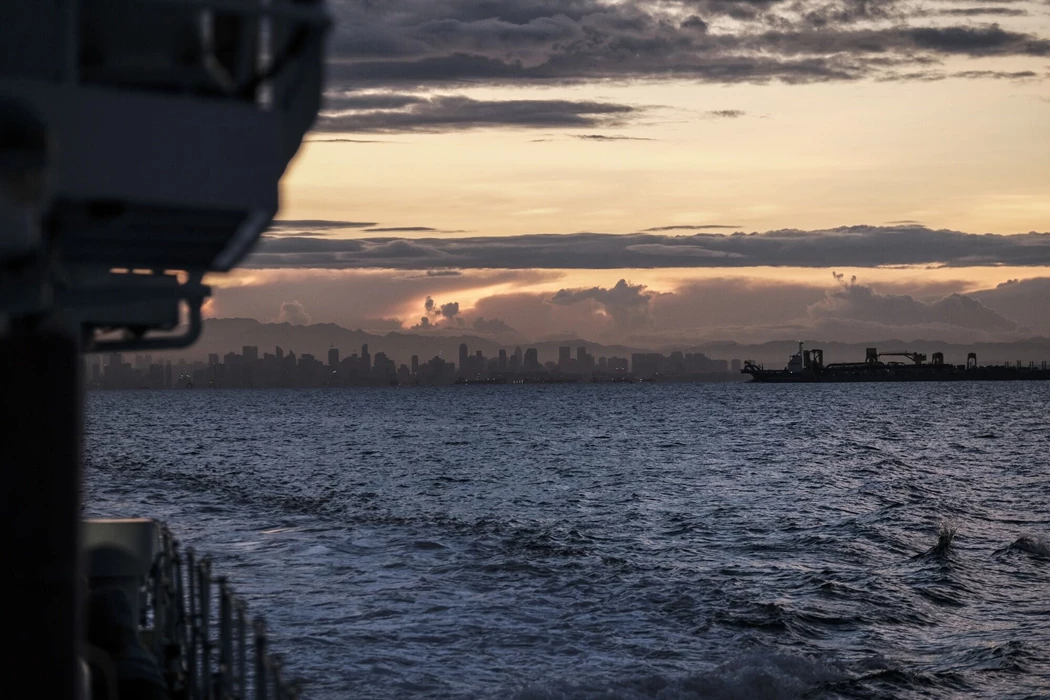Ship With Radioactive Zinc Dust Stuck Near Philippine Port, Official Says
(Bloomberg) -- A ship with 23 containers of radioactive zinc dust is stuck off the coast in the Philippines, unable to unload because there’s no site that has agreed to entomb the offending material, according to a top official.
Port authorities aren’t allowing the ship, which arrived a few days ago from Indonesia, to offload in Manila unless there’s a local government that’s willing to take custody of the cargo for temporary storage or disposal, Carlo Arcilla, director of the Philippine Nuclear Research Institute, said on Tuesday.
“These containers aren’t a danger to the public because there’s very little radiation outside the containers,” Arcilla said in a phone interview. The ship crew aren’t sick, he added.
Even so, the situation adds new complexity to the growing issue of radioactive materials found in various parts of Southeast Asia. An Indonesian investigation in September uncovered cesium-137 at a metal-processing hub that supplies materials for construction and manufacturing in a western Java industrial park. Separately, it also flagged the containers of zinc powder from the Philippines at a Jakarta port.Indonesia this month halted imports of scrap metal.
Cesium-137 is an artificial radionuclide used in medical devices and gauges, and is also one of the by-products of nuclear fission processes in reactors and weapons testing. Exposure to the isotope can raise the risk of cancer, according to the US Centers for Disease Control and Prevention.
A probe was initiated after the US Food and Drug Administration in August reported the detection of trace amounts of the radioactive material in frozen shrimp shipments from one of Indonesia’s largest prawn companies, leading to recalls by companies such as Walmart Inc.
The shipment now stuck off the coast of Manila contains zinc powder contaminated with cesium-137 that was exported to Indonesia by Zannwann International Trading Corp., a Chinese trading firm with offices in the Philippines, Arcilla said. It was returned to Manila following the detection of cesium-137, he said.
Zannwann didn’t respond to requests for comment. The Philippine Ports Authority referred queries to the Bureau of Customs, which didn’t respond.
The Philippine Nuclear Research Institute official said the zinc dust was sourced from Philippine steelmaker SteelAsia Manufacturing Corp. and another steel firm, and that radioactivity was only detected at SteelAsia’s scrap recycling plant located in Batangas province, south of the capital.
Zinc dust has a wide range of industrial and chemical uses because it resists corrosion.
SteelAsia on Saturday said it rejected the nuclear agency’s order to take custody of the containers, saying it has no connection to the zinc powder and that the cargoes didn’t originate from it. Nevertheless, the company, the Philippines’ top steelmaker, has voluntarily suspended operations at its plant out of caution.
The priority now, Arcilla said, is to look for a site to dispose of or entomb the 23 containers and remove the radioactive materials in SteelAsia’s facility and Zannwann’s warehouse, which he said could be “substantial.” Around 100 workers at both SteelAsia and Zannwann also need to be screened for any possible contamination illnesses, he added.
There have been no incidents of radioactivity detected in previous Zannwann shipments to Indonesia, Arcilla said. He couldn’t say whether the latest shipment from the Philippines is linked to the cesium-137 contamination in Indonesia.
(Updates with additional information on worker screening in 12th paragraph.)
©2025 Bloomberg L.P.





